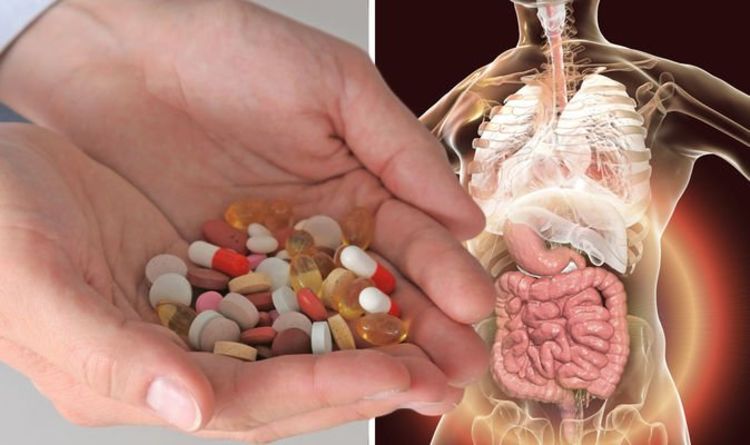Cancer patient says it took 10 hours to get home from hospital
We use your sign-up to provide content in ways you’ve consented to and to improve our understanding of you. This may include adverts from us and 3rd parties based on our understanding. You can unsubscribe at any time. More info
Cancer survival rates in the UK doubled in the last 40 years, owing to marked improvements in cancer care. A large portion of research funds has been invested in prevention too. To date, researchers have unearthed a plethora of risk factors for cancer, one of which may include a pill widely prescribed across the globe.
According to the Therapeutic Advances of Gastroenterology, proton-pump inhibitors are one of the most prescribed medications in the world.
In fact, it is estimated that there are more than 50 million prescriptions made annually for PPIs in the UK alone.
The website Patients explains: “Proton pump inhibitors reduce the amount of acid made by your stomach.
“They are commonly used to treat acid reflux and ulcers of the stomach and part of the gut called the duodenum.”
READ MORE: Bowel cancer signs: The ‘tell-tale’ sign on your skin ‘you should speak to your doctor’

One study published in the journal gut, however, detected an association between long-term use of the drug and a twofold greater risk of developing stomach cancer.
The discovery was made by a team of researchers from the University of Hong Kong and University College London found that the risk of developing cancer rose in line with the duration of treatment.
The findings were yielded from a study that looked at a cohort of more than 63,397 adults.
The participants included had been treated with a triple therapy combining PPI, and antibiotics.
Over the course of the study, which took place from 2012 to 2015, a total of 3,271 people took PPI while 21,729 took H2 blocked.
By the end of the follow-up period, a total of 153 people were diagnosed with stomach cancer.
While H2 blockers were found to have no link to a higher risk of stomach cancer, PPIs were connected to a doubled risk of stomach cancer.
Stephen Evans, professor of pharmacoepidemiology at the London School of Hygiene and Tropical Medicine said: “Many observational studies have found adverse effects associated with PPIs.

“The most plausible explanation for the totality of evidence on this is that those who are given PPIs, and especially those who continue on them long-term, tend to be sick in a variety of ways than those for whom they are not prescribed.”
Stomach cancer occurs when an uncontrolled growth of abnormal cells form in the inner lining of the stomach.
Unfortunately, the disease rarely produces symptoms until the later stages, when it is harder to treat.
Several factors increase the risk of stomach cancer, including tobacco or alcohol use, a diet high in smoked, salted, or pickled foods, and a history of stomach irritation or ulcers.

Eating a varied diet that emphasises fruits and vegetables offers some of the highest chances of avoiding the disease.
The Royal Surrey NHS Foundation recommends eating at least five portions of a variety of fruit and vegetables every day.
The health body adds: “Include starchy carbohydrates in each meal e.g rice, potatoes, bread, pasta.
“Try to choose wholegrain options where possible Include dairy or dairy alternative to provide calcium and other vitamins and minerals.”
Source: Read Full Article
